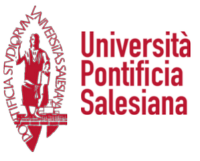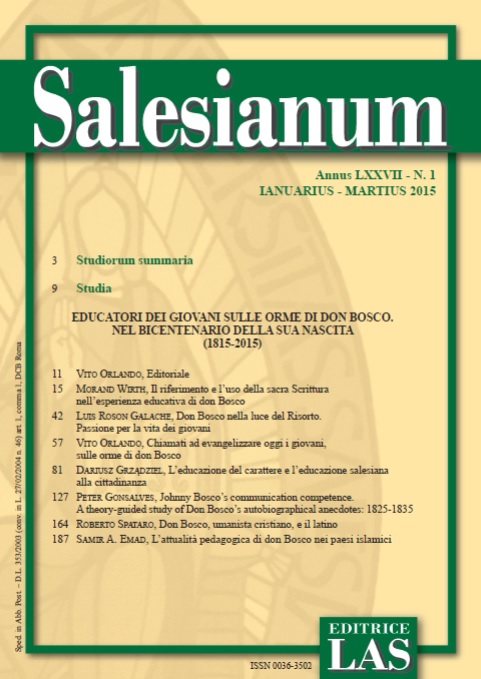Based on the premise that the effectiveness of educators is intrinsically linked to their competence as communicators, the author sets out to analyse the early life of don Bosco through his autobiographical writings in the Memoirs of the Oratory.
He consequently identifies six communication skills and three personality traits which he examines under the lens of various theories from the social sciences.
The resultant conclusion demonstrates the communication competence of young Johnny Bosco that sets the ground for the prolific communication activity of the future adult in his multi-layered role as friend of youth, priest and educator, founder and saint.
CONTENTS:
- The legitimacy of autobiographical research in a scientific work
- The advantages of a theory-guided analysis
- A) Communication skills
- 1. Embodied relational development
- 2. Listening and observing skills
- 3. Cognitional skill acquisition and development
- 4. Reading and memorising skills
- 5. Performance skills
- 6. Leadership skills
- B) Personality traits in the making
- 1. Self-esteem
- 2. Zeal
- 3. Integrity
- Conclusion
Reference time period: 1825 – 1835
P. Gonsalves, Johnny Bosco’s communication competence. A theory-guided study of Don Bosco’s autobiographical anecdotes: 1825-1835, in «Salesianum», 77 (2015), 1, 127-163.
Reference institution:
Università Pontificia Salesiana (UPS)
